| Recent Featured Videos and Articles | Eastern “Orthodoxy” Refuted | How To Avoid Sin | The Antichrist Identified! | What Fake Christians Get Wrong About Ephesians | Why So Many Can't Believe | “Magicians” Prove A Spiritual World Exists | Amazing Evidence For God | News Links |
| Vatican II “Catholic” Church Exposed | Steps To Convert | Outside The Church There Is No Salvation | E-Exchanges | The Holy Rosary | Padre Pio | Traditional Catholic Issues And Groups | Help Save Souls: Donate |  |









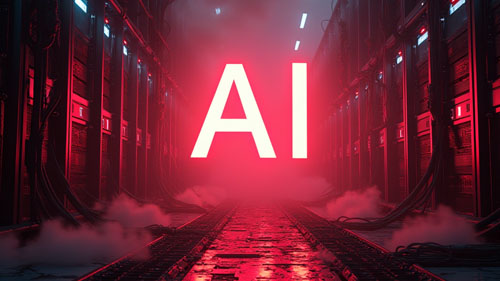 " />
" />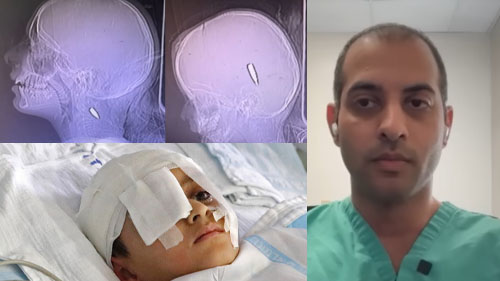 " />
" />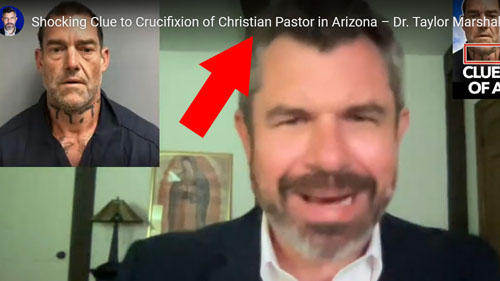 " />
" />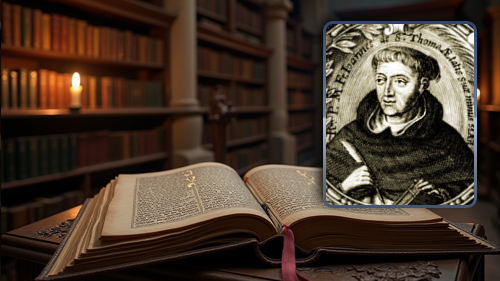 " />
" />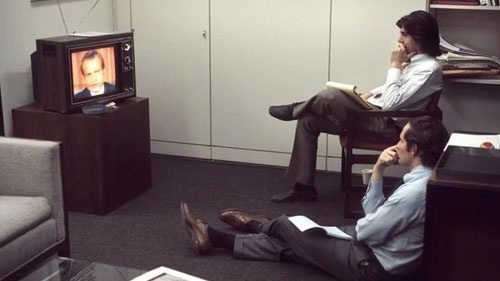 " />
" />




The Jewish Role in the Bolshevik Revolution and Russia's Early Soviet Regime
Mark Weber ihr.org/jhr In the night of July 16-17, 1918, a squad of Bolshevik secret police murdered Russia's last emperor, Tsar Nicholas II, along with his wife, Tsaritsa Alexandra, their 14-year-old son, Tsarevich Alexis, and their four daughters. They were cut down in a hail of gunfire in a half-cellar room of the house in Ekaterinburg, a city in the Ural mountain region, where they were being held prisoner. The daughters were finished off with bayonets. To prevent a cult for the dead Tsar, the bodies were carted away to the countryside and hastily buried in a secret grave. Bolshevik authorities at first reported that the Romanov emperor had been shot after the discovery of a plot to liberate him. For some time the deaths of the Empress and the children were kept secret. Soviet historians claimed for many years that local Bolsheviks had acted on their own in carrying out the killings, and that Lenin, founder of the Soviet state, had nothing to do with the crime. In 1990, Moscow playwright and historian Edvard Radzinsky announced the result of his detailed investigation into the murders. He unearthed the reminiscences of Lenin's bodyguard, Alexei Akimov, who recounted how he personally delivered Lenin's execution order to the telegraph office. The telegram was also signed by Soviet government chief Yakov Sverdlov. Akimov had saved the original telegraph tape as a record of the secret order.1 Radzinsky's research confirmed what earlier evidence had already indicated. Leon Trotsky -- one of Lenin's closest colleagues -- had revealed years earlier that Lenin and Sverdlov had together made the decision to put the Tsar and his family to death. Recalling a conversation in 1918, Trotsky wrote:2
Recent research and investigation by Radzinsky and others also corroborates the account provided years earlier by Robert Wilton, correspondent of the London Times in Russia for 17 years. His account, The Last Days of the Romanovs - originally published in 1920, and reissued in 1993 by the Institute for Historical Review -- is based in large part on the findings of a detailed investigation carried out in 1919 by Nikolai Sokolov under the authority of "White" (anti-Communist) leader Alexander Kolchak. Wilton's book remains one of the most accurate and complete accounts of the murder of Russia's imperial family.3 A solid understanding of history has long been the best guide to comprehending the present and anticipating the future. Accordingly, people are most interested in historical questions during times of crisis, when the future seems most uncertain. With the collapse of Communist rule in the Soviet Union, 1989-1991, and as Russians struggle to build a new order on the ruins of the old, historical issues have become very topical. For example, many ask: How did the Bolsheviks, a small movement guided by the teachings of German-Jewish social philosopher Karl Marx, succeed in taking control of Russia and imposing a cruel and despotic regime on its people? In recent years, Jews around the world have been voicing anxious concern over the specter of anti-Semitism in the lands of the former Soviet Union. In this new and uncertain era, we are told, suppressed feelings of hatred and rage against Jews are once again being expressed. According to one public opinion survey conducted in 1991, for example, most Russians wanted all Jews to leave the country.4 But precisely why is anti-Jewish sentiment so widespread among the peoples of the former Soviet Union? Why do so many Russians, Ukrainians, Lithuanians and others blame "the Jews" for so much misfortune?A Taboo Subject
Although officially Jews have never made up more than five percent of the country's total population,5 they played a highly disproportionate and probably decisive role in the infant Bolshevik regime, effectively dominating the Soviet government during its early years. Soviet historians, along with most of their colleagues in the West, for decades preferred to ignore this subject. The facts, though, cannot be denied. With the notable exception of Lenin (Vladimir Ulyanov), most of the leading Communists who took control of Russia in 1917-20 were Jews. Leon Trotsky (Lev Bronstein) headed the Red Army and, for a time, was chief of Soviet foreign affairs. Yakov Sverdlov (Solomon) was both the Bolshevik party's executive secretary and -- as chairman of the Central Executive Committee -- head of the Soviet government. Grigori Zinoviev (Radomyslsky) headed the Communist International (Comintern), the central agency for spreading revolution in foreign countries. Other prominent Jews included press commissar Karl Radek (Sobelsohn), foreign affairs commissar Maxim Litvinov (Wallach), Lev Kamenev (Rosenfeld) and Moisei Uritsky.6 Lenin himself was of mostly Russian and Kalmuck ancestry, but he was also one-quarter Jewish. His maternal grandfather, Israel (Alexander) Blank, was a Ukrainian Jew who was later baptized into the Russian Orthodox Church.7 A thorough-going internationalist, Lenin viewed ethnic or cultural loyalties with contempt. He had little regard for his own countrymen. "An intelligent Russian," he once remarked, "is almost always a Jew or someone with Jewish blood in his veins."8Critical Meetings
In the Communist seizure of power in Russia, the Jewish role was probably critical. Two weeks prior to the Bolshevik "October Revolution" of 1917, Lenin convened a top secret meeting in St. Petersburg (Petrograd) at which the key leaders of the Bolshevik party's Central Committee made the fateful decision to seize power in a violent takeover. Of the twelve persons who took part in this decisive gathering, there were four Russians (including Lenin), one Georgian (Stalin), one Pole (Dzerzhinsky), and six Jews.9 To direct the takeover, a seven-man "Political Bureau" was chosen. It consisted of two Russians (Lenin and Bubnov), one Georgian (Stalin), and four Jews (Trotsky, Sokolnikov, Zinoviev, and Kamenev).10 Meanwhile, the Petersburg (Petrograd) Soviet -- whose chairman was Trotsky -- established an 18-member "Military Revolutionary Committee" to actually carry out the seizure of power. It included eight (or nine) Russians, one Ukrainian, one Pole, one Caucasian, and six Jews.11Finally, to supervise the organization of the uprising, the Bolshevik Central Committee established a five-man "Revolutionary Military Center" as the Party's operations command. It consisted of one Russian (Bubnov), one Georgian (Stalin), one Pole (Dzerzhinsky), and two Jews (Sverdlov and Uritsky).12Contemporary Voices of Warning
Well-informed observers, both inside and outside of Russia, took note at the time of the crucial Jewish role in Bolshevism. Winston Churchill, for one, warned in an article published in the February 8, 1920, issue of the London Illustrated Sunday Herald that Bolshevism is a "worldwide conspiracy for the overthrow of civilization and for the reconstitution of society on the basis of arrested development, of envious malevolence, and impossible equality." The eminent British political leader and historian went on to write:13 David R. Francis, United States ambassador in Russia, warned in a January 1918 dispatch to Washington: "The Bolshevik leaders here, most of whom are Jews and 90 percent of whom are returned exiles, care little for Russia or any other country but are internationalists and they are trying to start a worldwide social revolution."14 The Netherlands' ambassador in Russia, Oudendyke, made much the same point a few months later: "Unless Bolshevism is nipped in the bud immediately, it is bound to spread in one form or another over Europe and the whole world as it is organized and worked by Jews who have no nationality, and whose one object is to destroy for their own ends the existing order of things."15 "The Bolshevik Revolution," declared a leading American Jewish community paper in 1920, "was largely the product of Jewish thinking, Jewish discontent, Jewish effort to reconstruct."16 As an expression of its radically anti-nationalist character, the fledgling Soviet government issued a decree a few months after taking power that made anti-Semitism a crime in Russia. The new Communist regime thus became the first in the world to severely punish all expressions of anti-Jewish sentiment.17 Soviet officials apparently regarded such measures as indispensable. Based on careful observation during a lengthy stay in Russia, American-Jewish scholar Frank Golder reported in 1925 that "because so many of the Soviet leaders are Jews anti-Semitism is gaining [in Russia], particularly in the army [and] among the old and new intelligentsia who are being crowded for positions by the sons of Israel."18Historians' Views
Summing up the situation at that time, Israeli historian Louis Rapoport writes:19 "Anyone who had the misfortune to fall into the hands of the Cheka," wrote Jewish historian Leonard Schapiro, "stood a very good chance of finding himself confronted with, and possibly shot by, a Jewish investigator."20 In Ukraine, "Jews made up nearly 80 percent of the rank-and-file Cheka agents," reports W. Bruce Lincoln, an American professor of Russian history.21 (Beginning as the Cheka, or Vecheka) the Soviet secret police was later known as the GPU, OGPU, NKVD, MVD and KGB.) In light of all this, it should not be surprising that Yakov M. Yurovksy, the leader of the Bolshevik squad that carried out the murder of the Tsar and his family, was Jewish, as was Sverdlov, the Soviet chief who co-signed Lenin's execution order.22 Igor Shafarevich, a Russian mathematician of world stature, has sharply criticized the Jewish role in bringing down the Romanov monarchy and establishing Communist rule in his country. Shafarevich was a leading dissident during the final decades of Soviet rule. A prominent human rights activist, he was a founding member of the Committee on the Defense of Human Rights in the USSR. In Russophobia, a book written ten years before the collapse of Communist rule, he noted that Jews were "amazingly" numerous among the personnel of the Bolshevik secret police. to read more: ihr.org/jhrSign up for our free e-mail list to see future vaticancatholic.com videos and articles.
Recent Content
^